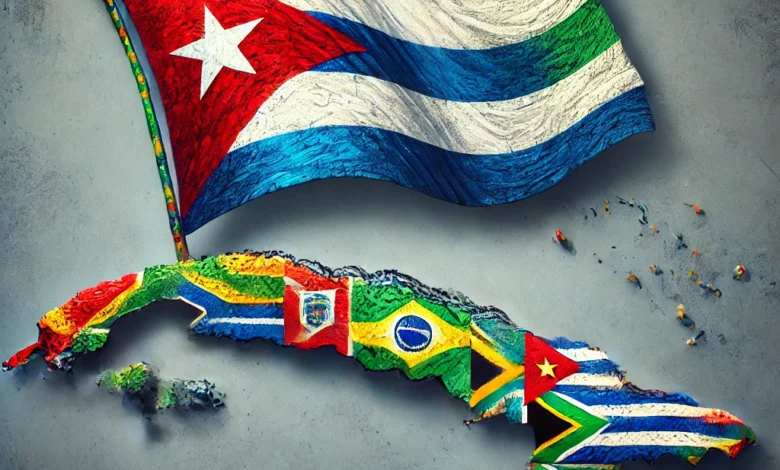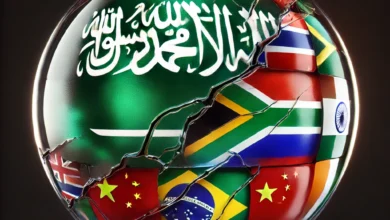Cuba Joins BRICS: A Transformative Shift in Global Trade and Geopolitics

Cuba’s Historic Decision to Join BRICS: A Game-Changer for Global Trade and Geopolitics
Cuba’s historic decision to join the BRICS alliance marks a monumental shift in the global economic landscape. After decades of political isolation and economic hardship, this move positions Cuba as a potential key player in the rapidly evolving world order. The inclusion of Cuba in BRICS opens new doors to economic opportunities, reshaping its future, influencing global trade, and challenging traditional geopolitical norms.
The U.S. Embargo on Cuba: A Barrier to Economic Growth
For over 60 years, the U.S. embargo has imposed severe restrictions on Cuba’s access to international trade and financial markets. The embargo, which was implemented in the 1960s following the Cuban Revolution, sought to isolate Cuba due to its shift toward communism. These restrictions severely hindered Cuba’s ability to engage in global commerce, restricting access to advanced technologies, essential resources, and foreign investments.
Despite the embargo, Cuba has managed to survive through resourceful domestic innovation and partnerships with other socialist and non-aligned nations. However, the lack of access to the global economy has prevented Cuba from achieving its full economic potential.
Cuba’s Agricultural and Healthcare Innovations Amid Economic Challenges
While the embargo created significant challenges, Cuba has shown remarkable resilience, particularly in sectors like agriculture, energy, and healthcare. Through urban farming and sustainable agricultural practices, Cuba has maintained some agricultural production. Similarly, Cuba’s healthcare system, despite limited resources, has produced innovative vaccines and medicines that have been deployed globally.
Cuba’s Path Toward Economic Transformation with BRICS Membership
Cuba’s strategic shift toward new international partnerships, particularly with BRICS countries, marks the beginning of a new chapter for the island. BRICS—comprising Brazil, Russia, India, China, and South Africa—represents a powerful coalition of emerging economies, collectively contributing to over 45% of global GDP. Cuba’s membership in BRICS opens up a wealth of trade, financial, and development opportunities previously unavailable to the country.
How BRICS Membership Benefits Cuba: Access to Alternative Financial Systems and Global Trade
By joining BRICS, Cuba gains access to alternative financial systems, bypassing the U.S. dollar, which has long been a tool in enforcing sanctions. BRICS nations have developed alternative currencies and barter systems, offering Cuba the flexibility to engage in trade without the limitations imposed by the U.S. embargo.
Additionally, Cuba can now access critical development funds from BRICS’ development banks, such as the New Development Bank (NDB), which finance large-scale infrastructure projects. This funding can be used to modernize Cuba’s energy infrastructure, healthcare system, and other vital sectors.
Cuba’s Strategic Location: A Gateway for BRICS Trade in the Americas
Cuba’s geographical location, just 90 miles off the coast of Florida, gives it a strategic advantage in the Western Hemisphere. The Port of Mariel, Cuba’s key infrastructure asset, is poised to become a central hub in BRICS’ supply chain, enhancing trade efficiency between BRICS nations and the Americas.
Medical Research and Biotechnology: Cuba’s Role in Global Innovation
Cuba’s leadership in medical research and biotechnology positions it as an invaluable partner in BRICS collaborations. With expertise in affordable vaccines and medical treatments, Cuba can now expand its innovations to BRICS countries and broader global markets, strengthening the island’s influence in the global health sector.
Sustainable Development: Cuba’s Green Energy and Agriculture Initiatives in BRICS
Cuba’s commitment to sustainable development, particularly in clean energy and organic farming, aligns with BRICS’ environmental goals. By accessing new resources and technologies through BRICS, Cuba has the opportunity to accelerate its efforts in green energy and contribute to global sustainability initiatives.
The Geopolitical Shift: Cuba’s Entry Into BRICS and the Decline of U.S. Influence
Cuba’s entry into BRICS signifies a direct challenge to U.S. dominance in the Western Hemisphere. With support from BRICS members like Russia and China, Cuba’s strategic alignment with these powers allows it to break free from U.S. sanctions and assert itself as a growing force in global trade and geopolitics.
What Does Cuba’s Inclusion in BRICS Mean for the Future?
Cuba’s membership in BRICS marks the beginning of a transformative journey. This partnership provides Cuba with the tools it needs to overcome economic isolation, boost trade, and modernize its infrastructure. Key questions remain: Will BRICS be the catalyst that allows Cuba to fully break free from U.S. sanctions? How will Cuba’s integration accelerate the shift toward a multipolar world? What are the long-term impacts on global trade and geopolitics?
As Cuba navigates this new chapter, the answers to these questions will shape the future of the global economy. Cuba’s participation in BRICS will play a pivotal role in redefining geopolitical dynamics, contributing to the rise of a multipolar world order that shifts the balance of power on a global scale.

